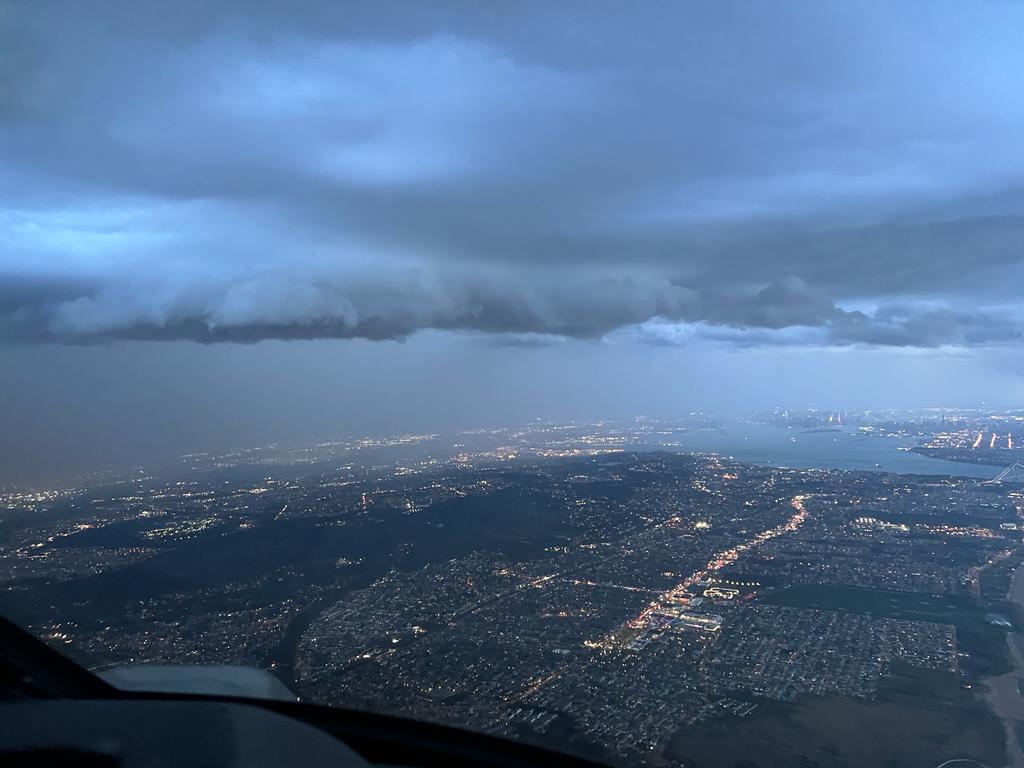The value of established protocols for the seamless delivery of a private jet trip support service should not be overlooked. Just like a checklist performed by a crew before departure, a trip support operations team must have vetted procedures to handle regular arrangements and also to manage unusual events that may occur throughout a flight. The Icarus Jet team recently relied on these protocols and organized team structure to handle a diversion situation due to inclement weather on a flight from the Bahamas to the northern U.S. east coast.
Constant communication with the crew during a flight is a key element of a trip support service and allows the trip support team to act quickly on the ground amidst any urgent situation. This was evidenced when the crew of the flight that departed from the Bahamas had to divert to another airport in the U.S. at the very last minute because of bad weather before reaching the destination on the eastern coast of Morristown. This showcases how quickly flight planning can change and the incalculable value from an operational safety perspective that established procedures bring to the table.
The Initial Plan
With everything arranged for the start of the flight in the Bahamas, from aircraft ground handling services, and fuel, up to customs, a normal private charter operation to Morristown, New Jersey, was in place until the crew informed about the need to divert. The main issue was that they would be unable to land at the Morristown Airport due to the Customs and Border Protection (CBP) operating hours.

Considering this was a weekend flight and that last-minute changes demanded adapting the overall coordination, the Icarus Jet team had to act quickly and simultaneously file another Electronic Advance Passenger Information System (eAPIS), a new General Declaration (GENDEC) while also calling the CBP to obtain approval. Time was of the essence and coordination was also required with the Morristown Airport officials for customs clearance.
The Icarus Jet Operations Team’s Response
Agile responses with tangible solutions are only possible with established procedures. When coordinating the landing at Morristown the official said she was willing to wait an extra 30 minutes for the arrival of the aircraft, yet new information from the crew detailed that they might divert to Newark due to the weather, and if they were to proceed toward Morristown, the officer might have to wait for more than the given timeframe. Consequently, we managed to send the officer an email confirmation of the new destination and within minutes the crew informed us that they were on final approach to Newark. Naturally, the coordination does not end here.
New eAPIS and GENDEC were already prepared for Newark, yet the Morristown CBP officer on the line wants to receive all the information via email, despite the weather moving the operation away from Morristown Airport. The information was sent thoroughly and subsequently, the focus shifted now to Newark. After contacting the port director and local CBP officer, the Icarus Jet team managed to coordinate the presence of the official at the new destination to receive the aircraft. The crew informed that they safely landed and were waiting for the CBP officer – after less than 10 minutes, the officer arrived, and the aircraft received clearance in Newark.
Coordinating with the CBP Officer and Port Director
Successful coordination between local CBP and port director officers is a result of pre-established relationships and the experience of a team with a track record of multiple international charter flights. The coordination process involves a variety of different stakeholders, including operators, customs and border protection agencies, and airport authorities. A positive outcome will only be obtained if these stakeholders communicate effectively and work together to ensure that all necessary customs procedures are carried out in a timely and efficient manner, without compromising on security or compliance requirements.
Overall, flight services customs coordination is critical to ensuring the safe, secure, and efficient movement of passengers and crew across borders, while maintaining compliance with customs regulations and security requirements. The Icarus Jet trip support team understands that these policies and guidelines might vary between countries and that providing advanced notice of the flights and passengers to customs and border protection authorities in any corner of the world is a good practice that will ensure a seamless experience.
Conclusion
The coordination process of trip support services involves a team of professionals with expertise in various aspects of trip support, including flight planners, ground handlers, caterers, and fuel providers, among others. As evidenced by this recent case, these professionals work together to ensure that all aspects of the trip are planned and executed seamlessly and efficiently, from pre-flight planning to post-flight services.
The organized structure of Icarus Jet’s operations team will always make sure that a flight will reach its destination safely, even if last-minute events occur. Because of the structure that is in place, the operations team will never hesitate and will always find feasible and safe solutions to the crew’s needs. We are always committed to our core values of safety, privacy, and service, which translate into an operation that has all parties involved in the process, continuously aware of all the variables of a flight, intending to deliver consistent and highly efficient private flight services in the U.S and worldwide.




